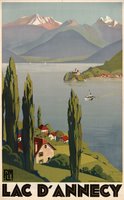In 1987 an Urban Studies professor and a graduate student (who just so happened to be man and wife) wrote an
article in which they decided they were planning gods and called for the creation of a “buffalo commons.”
Dr. and Mrs. Popper stated that the white settlement was a failure in the Great Plains. Environmental determinism was the reason for the failure because the plains had “the nation’s hottest summers and coldest winters, greatest temperature swings, worst hail and locusts and range fire, fiercest droughts and blizzards, and therefore its shortest growing season.”
Privatization, they claim, had failed. Agricultural practices and continuing drought would quickly lead to a new dust bowl. Population density in counties was way too small in order to justify existence. No way could the Great Plains survive.
The recommended route to recovery? Huge federal government intervention! The government, they believe, should buy up huge tracts of land to revert it to its “natural” (never mind that Midwest America was once forest until a long running fire campaign by Paleo-Indians destroyed the environment and created the grasslands) state and pack it full of animals like cougars and buffalo. The economy could be driven by tourism from the east and west coast. The Great Plains would become a park for those who know better than to live in fly over country. Maybe a few Midwesterners could stay around and help the richer folk as tour guides.
What about those people who do not wish to sell to the government? Well, the Poppers believe a huge relocation and reeducation program like the New Deal Resettlement Administration could help those who were forced off their land. The academics, I think, held the great resettlement programs governments did “for” American Indians, Australian Aborigines, Slavs, and many other groups in high regard.
Seems like a bleak future for the Midwest. There are some counter-arguments however.
First, the Poppers are either liars or just really, really, really poor researchers. In their rebuttal, Dr. Karen DeBres and others show that the Great Plains do not have the shortest growing season, fires are unheard of compared to California, and do not have the worst droughts. Many of Poppers claims are flat-out wrong. The authors also question the Poppers non-use of citations. It seemed a bit off for a graduate student and a professor not to cite their sources.
Secondly one can show with recent developments that not all the Poppers’ predictions are coming true. It has been nineteen years yet no new Dust Bowl. While some areas are still losing population, others are growing.
Thirdly deals with economics and demographics. Ever notice that beef and pork are not super pricey? That is because places like Morton County, Kansas; with its population density of five people per square mile, are heavily into cattle and pig production. One does not need to have a high population density to run these types of operations so population does not matter as much. Sure no one is left to run the Starbucks on every corner but people out in the Great Plains do not need the same things the Poppers do.
The Buffalo Commons theory is yet another result of a divide in American thought. Urbanites like the New Jersey Poppers see anything non-urban and think of it as a waste land. Meanwhile, many hearty and decent people make a living and love their life in the land of open sky. While the urbanites tend to make the most noise on the subject, the central Americans get results.


